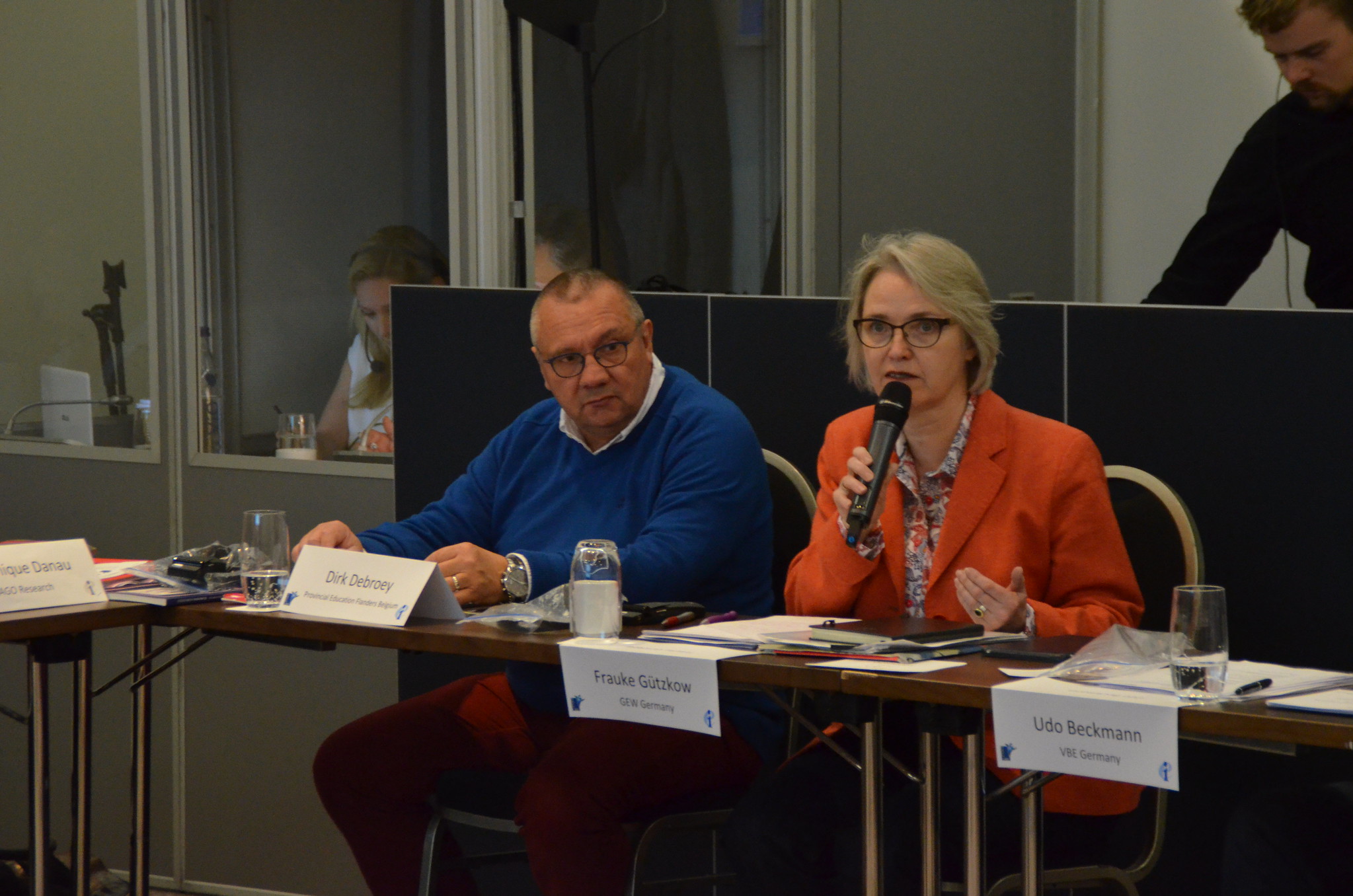Education for digital democratic citizenship in the Internet era
Published:
On 2 April 2019, ETUCE held in Berlin the third workshop in the joint ETUCE, EFEE (European Federation of Education Employers) and ESHA (European School Heads Association) project EU CONVINCE (EU Common Values Inclusive Education), supported by the German project partner, GEW.
The main conclusions were that sufficient and up-to-date school infrastructure and equipment, as well as sufficient and relevant teacher training and technical support in the classroom are key to implementing education for digital democratic citizenship. Moreover, participants highlighted that curricula lack a positive approach as regards the use of ICT in education.
Around 40 participants from Belgium, Croatia, Cyprus, Denmark, France, Germany, Greece, Italy Ireland, Latvia, Lithuania, The Netherlands, Poland, Portugal, Romania, Slovenia, Spain and Turkey, took part in the debates of the workshop.
Presenting the preliminary results of the projects online survey among ETUCE, EFEE and ESHA member organisations, project researcher Dominque Danau, reported that the main challenges in teaching digital democratic citizenship and e-safety include the scarce availability and access to teaching materials and evidence on how to cope with (mis)information from media sources in the classroom and how to teach critical thinking, as well as the fact that critical thinking/understanding does not prominently feature in education curricula. Elizabeth Milovidov from the Council of Europe, offered an insight into various materials and guides produced by the experts of the Council of Europe in the framework of Digital Citizenship Education Project Citizenship Education Project, including well-being online, e-presence and communication. Complementing these presentations, Dr. Catherine Lowry-O’Neil, School for Lifelong learning of ‘Waterford Institute of Technology’(Ireland), highlighted the importance of strengthening media literacy and ICT critical thinking to promote social inclusion and prevent indoctrination and radicalisation of students.
In smaller working groups, participants discussed challenges related to the responsible use of ICT and social media in the context of democratic digital citizenship and provided good practises and solutions, including digital parental education and participatory approaches based on dialogue between students and teachers. ETUCE, EFEE, and ESHA representatives from Denmark, Croatia, and Belgium, presented additional good practises, as well as Martin Schmalzried from COFACE Families Europe. The good practises from the workshop will be included in the Massive Online Open Course (MOOC) prepared by the European Inter-University Center for Human Rights and Digitalisation in the framework of the EU CONVINCE project, which takes place from 19 April to 9 June 2019.
The project concludes with a final conference in Warsaw, Poland on 14-15 November 2019.
To learn more about the EU CONVINCE project, follow #EUCONVINCE on Twitter and #Schoolsforinclusion on Facebook.
To enrol now to the MOOC course, please click here.
To see the photos of the training workshop, please click here.